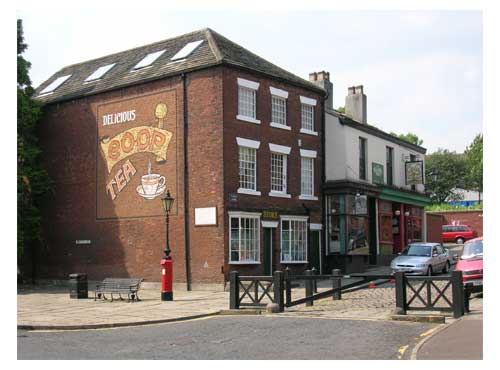One factor I have noticed about this diet is the likely increase in food costs, it is not possible to get gluten/wheat free foods on prescription. Free from food is expensive, no-one will disagree, so how can we make the Low FODMAP diet cheaper to follow? Some of the
vegetables and fruit allowed are not staple items, this also applies to the basic carbohydrates that are good to consider. It is important to have the full range of Low FODMAP foods to ensure you are receiving the full nutritional content in your diet your body needs to be healthy. But rising food costs are a problem currently, so help is required when you have been informed by your dietitian to try the diet to alleviate your IBS symptoms. So when shopping yesterday morning I thought about what to do to make the diet cheaper – here are some tips that might help:
1. Choose to buy in bulk, particularly the basic carbohydrates such as oats and rice.
2. If you have an ethnic supermarket close to where you live check out their prices for rice, they often have very large sacks of rice that are cheaper in bulk. This can mean a cost of £1.00-£1.20 a kilo – significant savings. Also check out bulk spice prices, again the saving can be substantial comparing with prices at the usual supermarket stocks. Some
supermarkets also are now providing bulk buy opportunities for rice.
3. Choose value items when buying fruit & vegetables, also some of the lower cost brand supermarkets such as Lidl and Aldi can have occasional offers of half price fruit & vegetables so watch out for these.
4. Remember misshapen fruit & vegetables taste the same and have the same level of nutrition and may be cheaper to buy.

http://www.telegraph.co.uk/earth/agriculture/farming/9572730/Wonky-fruit-and-veg-to-return-to-supermarket-shelves.html
5. Check out the offer shelves for items that are due to go out of date – it is normally obvious if fruit & vegetables are spoilt, check them thoroughly. You can make some real savings here.
6. Again check out for offers on free from items, they do occur and it is worth the outlay in time to watch for offers.
7. Base your diet on more cheaper carbohydrate basic foods, such as potatoes and make your own treats, this again may be cheaper than purchasing free from items.
8. Use your own flour blends, check out what is in ready-made wheat free flour blends and make your own.
9. Utilise coupons, supermarket offers and trials of free from food items.
10 Plan your food for the week and shop accordingly.
11. Use as many UK basic food items in your diet as you can such as bananas, carrots, potatoes, oranges, lettuce, tomato (watch amounts if you are fructose intolerant,) cucumber, celery (one stick maximum at any one meal. Recent (Jan 2013) information from Kings FODMAP researchers suggest that too much celery can increase FODMAP content of the diet.) Also base your breakfast on cheaper own branded cereals – you can always add your own Low FODMAP dried fruit (a tablespoon only) and nuts if you wish to.
12. If you do purchase wheat free bread, buy sliced, or slice it yourself and freeze what you don’t immediately need. This prevents wastage, also freeze other items you might not use initially. If you have a problem with resistant starches you might not want to freeze your bread, as freezing it can increase resistant starch content.
13. Utilise frozen and tinned fruit & vegetables, however be aware of what the tinned fruit juice is based on – you may be inadvertently adding a FODMAP to your diet, some have apple juice as a base.
14. Please don’t use ‘free from’ cook in sauces – these are generally not a great deal different from normal sauces, they may also contain onion and garlic. Make your own thickened with cornflour. Cornflour is simple to use to thicken sauces and it mixes into the sauce really easily.
15. Learn about your diet and look around the supermarket – the more expensive items will be on the free from shelves – alternatives may be available in other sections of the store.
16 If ordering on-line check out the delivery costs, purchase savvy to save on delivery
costs.
17. Bulk cook recipes and freeze what you don’t eat.
18. Also make your own stock, when buying meat or chicken, cook the waste scraps and bones in water with a stick of celery and carrot, allow to cool, skim off the fat and freeze in small amounts. Water from cooking vegetables can also be used in the same way if a vegetable stock is required.
19. Share bulk items with friends and family to share the initial cost in purchasing – using the principles of the co-operative society, originating in Rochdale and still a good ideal to follow when money is tight!
20. Even if it means that you don’t start the diet immediately, plan well, planning may be the key to ultimate success and a feeling of achievement when you can do the diet within budget.


